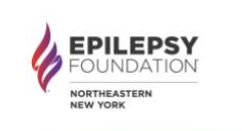Epilepsy Foundation of Northeastern New York Encourages Summer Safety For National Safety Month

June is National Safety Month. The Epilepsy Foundation of Northeastern New York urges everyone to practice proper safety precautions this summer. Beautiful weather means more opportunities to enjoy the outdoors. By familiarizing yourself with safety tips and making wise choices for summer safety, you could potentially prevent a dangerous situation.
As the sun shines brighter and the days grow longer, it's essential to prioritize safety in all our activities. Whether you're heading out for a leisurely picnic in the park or planning a fun-filled day at the beach, taking steps to ensure safety is crucial. Remember to stay hydrated, wear sunscreen, and always be aware of your surroundings.
For individuals living with epilepsy, being mindful and taking necessary precautions can make all the difference in enjoying a safe and fulfilling summer season. If you or a loved one has epilepsy, make sure to have a seizure action plan in place and communicate it with those around you. By working together and fostering a culture of safety and support, we can all have a wonderful summer while prioritizing the well-being of ourselves and others. Let's make this National Safety Month a time of awareness, preparedness, and enjoyment for all.
To ensure water safety, it is advisable to never swim alone, wear a life jacket when swimming or boating, and always choose swimming areas with a lifeguard on duty. Individuals with epilepsy can drown if they have a seizure in water, even if they know how to swim. Children can drown in as little as an inch of water, or enough water to cover the nose if the child is lying face forward. Drowning occurs swiftly and quietly, leaving little time to react. Vigilance is crucial. For those diagnosed with epilepsy, extra caution should be taken when near or in bodies of water.
In line with the 'National Safety Month' theme, our team would like to emphasize the importance of wearing seatbelts. Car accidents cause more traumatic brain injuries than any other type of accident in the US. In addition to wearing seatbelts, it's crucial to drive attentively, avoid distractions, and obey traffic laws. By practicing safe driving habits, we can significantly reduce the risk of accidents and protect ourselves and others on the road. Let's all commit to prioritizing safety behind the wheel, not just during National Safety Month, but every day of the year. Your well-being is important, so buckle up, stay focused, and drive safely!
Not all seizures are emergencies. However, making sure you know what is considered a seizure emergency is important for the safety of the person having a seizure! A seizure emergency happens when A. A seizure lasts longer than 5 minutes B. Seizure activity doesn't resolve after 10 minutes (continuous seizures that seem to stop, and then start again immediately) C. Loss of consciousness while in water (baths, swimming pools, etc.) D. If the person is pregnant or has a pre-existing condition that would need to get checked out E. If the person gets injured during the seizure
The Epilepsy Foundation provides support services to people with epilepsy and their families including counseling, support groups, art therapy, and recreational outings. The Epilepsy Foundation also offers educational services to schools, summer camps, workplaces, professional organizations, and more. To learn more about the services the Epilepsy Foundation of Northeastern New York provides please visit their website www.efneny.org or call (518) 456-7501.
Epilepsy is a neurological disorder defined as having two or more unprovoked seizures; it can happen to anyone, at any age, at any time. 1 in 26 people will be diagnosed with epilepsy in their lifetime. Epilepsy is more common than Cerebral Palsy, Muscular Dystrophy, Multiple Sclerosis, and Parkinson’s disease combined. For more information, call the Epilepsy Foundation at 518-456-7501 or visit our website at www.efneny.org.
###
About the Epilepsy Foundation of Northeastern New York, Inc: We are a 501(c)(3) non-profit organization that provides direct assistance to thousands of people with epilepsy each year in twenty-two counties across the Capital Region, North Country, and the Upper Hudson Valley. Other services include public education and training, school education programs, service coordination, advocacy, support groups, and counseling. Your support of the Foundation allows us to continue our important work on behalf of the more than 45,000 people affected by epilepsy in our area. www.efneny.org
